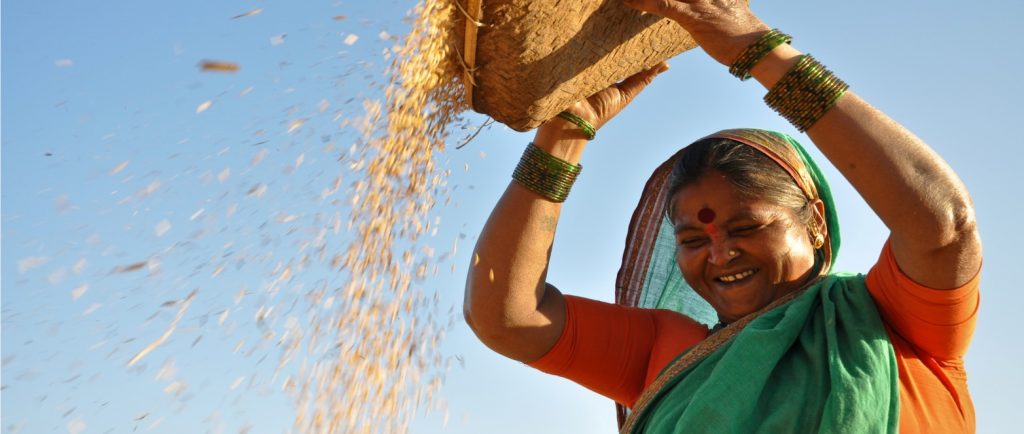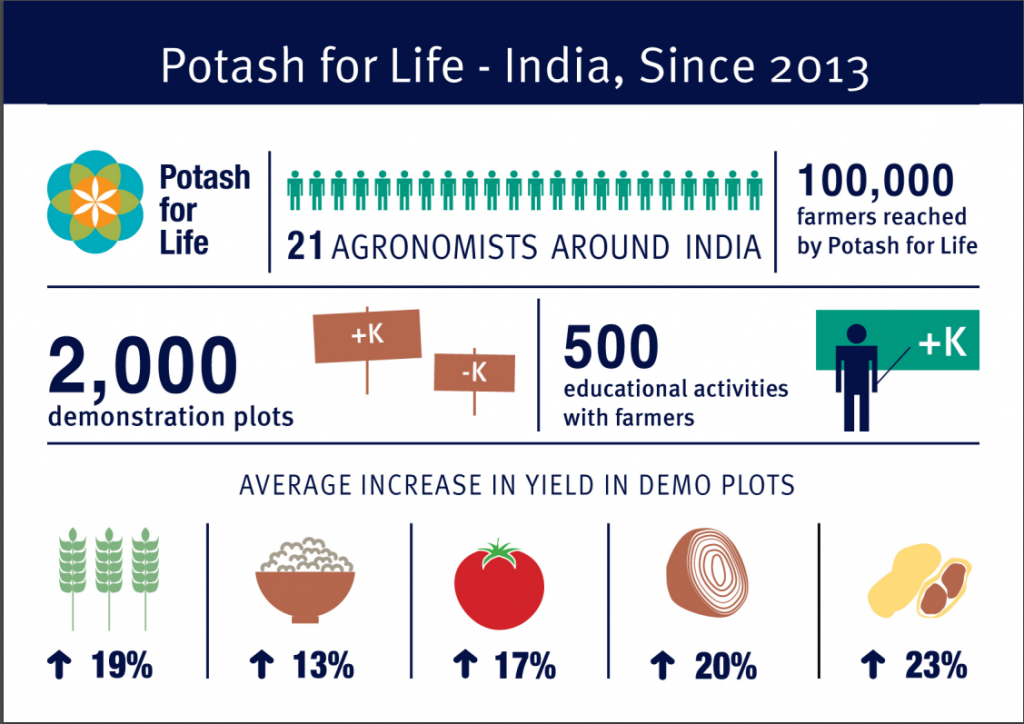Scientific Collaborations

International Potash Institute (IPI)
ICL is involved in and supports the goals of the International Potash Institute (IPI). The IPI’s mission is to develop and promote balanced fertilization to obtain higher yields and greater nutritious food ensuring sustainable production through conservation of soil fertility for future generations. Founded in 1952, IPI is a non-governmental, non-profit organization with worldwide reach.
150 field experiments and research projects worldwide
The International Potash Institute (IPI) aims to help farmers, and those who advise them, to respond to these challenges by:
- Contributing to the maintenance of soil fertility and the production of nutritious food by conducting related applied research and educational programs.
- Disseminating and transferring knowledge available on the effects of potassium (K) in soil and its impact on yields, quality and stress tolerance in plants.
- Collecting, analyzing and sharing the results and information on the effects of balanced fertilization to optimize the use of plant nutrition.
Nine of ICL’s agronomists are acting as IPI coordinators, executing experiments, organizing training and meetings and publishing relevant materials in countries worldwide. Read more about the IPI’s activities.


IPI-CAU-ISSAS International Symposium
The sustainability of agricultural systems greatly depends on balanced fertilization. For farmers in China, the priority is to implement precise and targeted crop nutrition for optimum crop productivity and profitability. The IPI held an international symposium regarding efficient balanced plant nutrition.
Potash for Life – Sharing Knowledge with Farmers


For over a decade, ICL has participated in an initiative to provide farmers with science-based evidence on the advantages of using potash. The project also raises awareness among farmers about the benefits of balanced fertilizer use. ICL’s agronomists work with farmers in developing countries, including India, Bangladesh, Sri Lanka, China, the Philippines, Brazil and Mozambique. ICL personnel also work with agronomists, researchers and government agencies around the world to conduct potash-based agricultural research, farmers’ meetings and provide training services through the International Potash Institute (IPI).
A prominent example of such campaigns from recent years is ICL’s “Potash for Life” program in India. The goal of the program is to reach isolated and remote villages and to spread the word about the benefits of potassium as fertilizer for agriculture.
Potash for Life in numbers: 2013 – 2019
- 21 agronomists around India
- 375,000 farmers reached by Potash for Life
- 5,000 demonstration plots
- 1,500 educational activities with farmers




IPI has created two apps for use by farmers and anyone who is interested. The IPI Research App gives up-to-date research related to fertilizer use in agriculture worldwide. The IPI Research App contains a growing library of the latest research into fertilizer use in agriculture. The app enables one to search through an archive of experiments and research papers on the optimal use of fertilizers for different crops, soil types, and growing conditions around the world. The search tools can be used to filter research by crop or location, or one can search by author and/or title for a particular research paper. This powerful fingertip fertilizer tool keeps an extensive and growing archive of knowledge in the palm of one’s hand, and can be used with or without an internet connection.
The K gallery App from the IPI includes over 150 high quality original photos illustrating the typical response of various crops to the application of potash fertilizer, and potassium deficiency symptoms in leaves.




HarvestZinc
ICL is participating in the HarvestZinc project. The project is part of HarvestPlust which develops and promotes new, more nutritious varieties of staple food crops with higher amounts of vitamin A, iron or zinc—three of the micronutrients identified by the World Health Organization as most lacking in diets globally. The process is known as biofortification—and regular consumption of these innovative crops is improving nutrition and public health.
The project reveals the feasibility of a fertilizer strategy and its vast potential in alleviating deficiencies of zinc (Zn), iodine (I), iron (Fe) and selenium (Se) to positively impact human health.
The HarvestZinc project represents a social responsibility project and a global partnership that seeks a short-term solution to well-known micronutrient deficiencies, especially zinc, in the human population.
The results of the first three phases of the project (begun in 2008) revealed the feasibility of implementing a fertilizer strategy and its significant potential to alleviate deficiencies of zinc (Zn), iodine (I), iron (Fe) and selenium (Se), and their positive impact on human health. Phase 3 of the project demonstrated marked increases in iodine concentrations in grains of rice, maize and wheat after their foliar spray with iodine, which highlights the great potential of agronomy (e.g., a fertilizer strategy) for agronomic biofortification of cereal crops with iodine like zinc and selenium.
The fourth phase of the project began in 2018 and is expected to continue for three years. It will investigate new fertilizer products and plant protection compounds for their agronomic efficacy in increasing grain micronutrient concentration of food crops, consumer acceptance and a market study.




